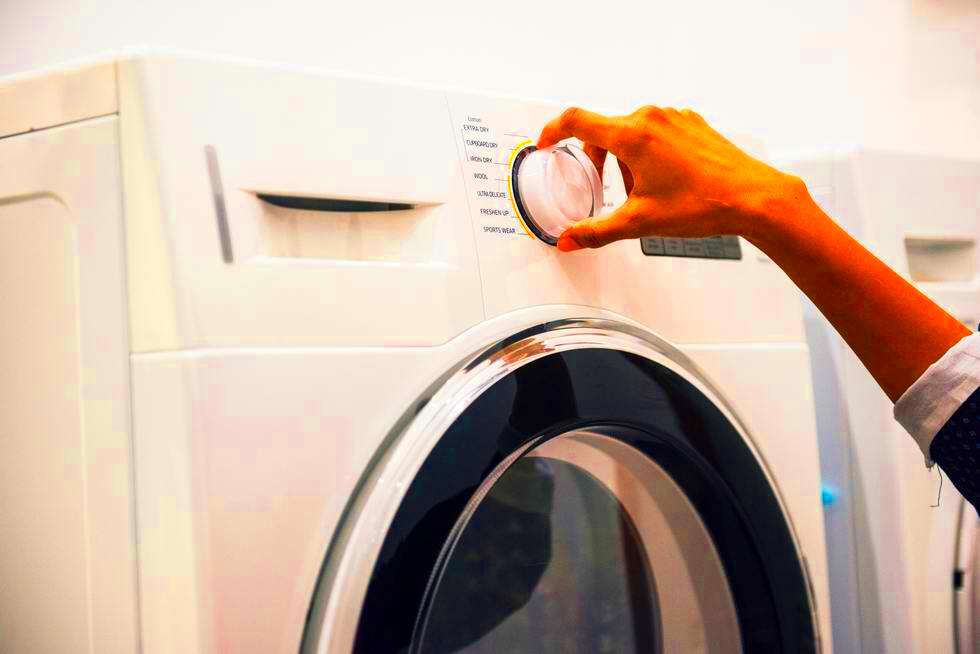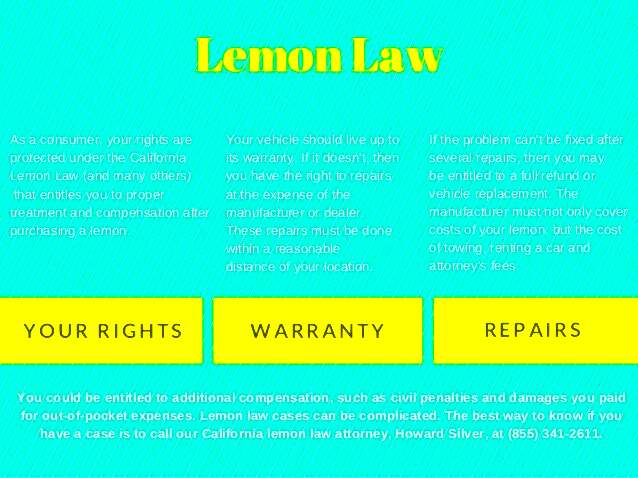What Lemon Laws Mean for Appliances
Weve all felt the annoyance of buying an appliance only to discover that it’s defective or not up to par. Its disheartening when something as basic as a washer or fridge fails to deliver on its promises. Fortunately lemon laws are in place to safeguard consumers like us. These regulations offer a lifeline for individuals who end up with faulty appliances. In this article we will explore the implications of lemon laws, for appliances their application and the steps you can take if you find yourself facing such a predicament.
What Are Lemon Laws?

Lemon laws are designed to protect consumers who purchase defective vehicles. They provide recourse for buyers who find themselves with a car that has significant issues that cannot be repaired after a reasonable number of attempts. The specifics of lemon laws can vary from state to state but they typically require the manufacturer or dealer to either replace the vehicle or offer a refund if it is deemed a lemon. To qualify for protection under lemon laws the vehicle must usually be still under warranty and the problems should occur within a certain timeframe or mileage limit. Its important for consumers to keep records of repairs and complaints to support their case in the event of a dispute. Overall lemon laws aim to ensure that buyers are not stuck with a lemon and receive fair treatment when it comes to defective vehicles.
- Definition of a Lemon: A product that has significant defects which affect its use, safety, or value, and these issues can’t be fixed after a reasonable number of attempts.
- Consumer Protection: Lemon laws often require manufacturers or sellers to repair, replace, or refund the defective appliance.
- Timeframe: There’s usually a specific time period within which you can claim under the lemon laws, which varies by jurisdiction.
Based on what Ive gone through handling a lemon can be quite exasperating and perplexing. However being aware of your rights and the safeguards in place can really change the game.
How Lemon Laws Apply to Appliances

Lemon laws regarding appliances are in place to protect consumers by ensuring that they get a product that works as advertised. Here’s a breakdown of how these laws commonly apply to appliances.
- Eligibility: To be eligible for lemon law protection, the appliance must exhibit significant defects that hinder its normal use. Common issues include repeated breakdowns, non-functioning parts, or performance failures that occur despite multiple repair attempts.
- Repair Attempts: Before claiming lemon law protection, you generally need to allow the manufacturer or seller a reasonable number of chances to fix the problem. This is often documented through repair records or service calls.
- Documentation: Keep detailed records of your appliance’s issues, repair attempts, and any communication with the seller or manufacturer. This documentation is crucial for a successful claim.
- Resolution: If the appliance qualifies under lemon laws, you might be entitled to a replacement, a repair, or even a refund. The specific remedy depends on the laws of your region.
From what I’ve seen grasping the ins and outs of lemon laws for appliances has made me feel more assured in handling the process. It’s comforting to be aware that there are safeguards, in place for those annoying predicaments.
Understanding the Criteria for Lemon Laws

Here’s a closer look at the key criteria:
- Defect Severity: The defect should significantly impair the appliance’s functionality, safety, or value. For example, if your washing machine keeps leaking water or your refrigerator fails to maintain a consistent temperature, these are considered serious issues.
- Repair Attempts: Typically, the manufacturer or seller must have had multiple opportunities to repair the defect. This number can vary, but often it’s around three to four attempts.
- Timeframe: There’s usually a set period during which the defect must occur and attempts to repair it must be made. This timeframe can vary depending on local lemon laws.
- Documentation: Keep all your repair records and communication with the seller or manufacturer. Documentation is essential in proving your case.
Based on what I’ve seen, it can be really annoying to deal with appliances that don’t function properly. Understanding the criteria for lemon law protection can help you determine if your appliance meets the requirements. It’s similar to having a roadmap that navigates you through the complexities of consumer rights.
Steps to Take if Your Appliance Qualifies as a Lemon
If you’ve figured out that your appliance fits the bill as a lemon it’s crucial to go through the right processes to find a solution. It’s somewhat similar to finding your way in a maze; having a route in mind can ease the journey.
Here’s a step-by-step guide:
- Document Everything: Gather all relevant paperwork including receipts, repair records, and any correspondence with the manufacturer or seller.
- Contact the Seller or Manufacturer: Inform them of the defect and your intent to pursue a lemon law claim. This should be done in writing, ideally via email or certified mail, to ensure there’s a record.
- Give One Last Chance: Provide a final opportunity for the manufacturer or seller to repair the appliance. This step is crucial before moving forward with legal action.
- File a Claim: If the issue remains unresolved, you can file a lemon law claim. This might involve reaching out to a consumer protection agency or consulting with a lawyer who specializes in lemon laws.
- Seek Resolution: Depending on your region, you might be entitled to a repair, replacement, or refund. The specifics will depend on local laws and the outcome of your claim.
Personally I found that following these steps carefully led to a outcome. It’s a way of doing things that makes sure you cover all the important parts of the lemon law process.
Common Issues Covered Under Lemon Laws for Appliances
Lemon laws exist to protect you from major flaws in appliances that could disrupt your routine. Knowing what problems are usually included in these laws can assist you in deciding whether your appliance qualifies for this safeguard.
Lemon laws tackle issues such as.
- Functional Failures: Problems that prevent the appliance from operating as intended. For example, a microwave that doesn’t heat or a dishwasher that doesn’t clean dishes properly.
- Safety Issues: Defects that could pose a safety risk. Imagine a refrigerator that has faulty wiring or a washing machine that shakes violently. These are serious concerns.
- Repeated Breakdowns: Appliances that keep breaking down despite multiple repairs. This includes issues like persistent leaks, malfunctioning controls, or parts that keep failing.
- Performance Problems: If the appliance doesn’t perform to the standard promised at the time of purchase, such as a dryer that doesn’t dry clothes effectively.
From what I’ve seen handling problems like these can be quite daunting. The lemon laws provide a comforting feeling with their legal structure backing you up. It’s reassuring to realize that you don’t have to navigate these obstacles by yourself.
How to File a Lemon Law Claim for an Appliance
Filing a lemon law claim for an appliance may appear challenging at first, but simplifying it into steps can ease the journey. If you’ve reached a stage where your appliance continues to have persistent problems despite attempts to fix them here’s a guide on how to go about filing a claim.
Follow these steps to get started:
- Gather Documentation: Collect all relevant documents such as purchase receipts, repair records, warranties, and any communication with the manufacturer or seller. This evidence will be crucial in proving your case.
- Review Lemon Laws: Familiarize yourself with the lemon laws in your region. Each area may have different requirements and processes. Knowing these specifics can help you prepare effectively.
- Contact the Manufacturer or Seller: Notify them in writing about the defect and your intent to file a lemon law claim. Ensure you keep copies of all correspondence.
- Submit a Claim: Depending on the process in your area, you may need to file a claim through a consumer protection agency or directly with the manufacturer. Some regions have specific forms or online portals for this purpose.
- Consider Legal Advice: If the process seems overwhelming, or if you encounter resistance, consulting a lawyer who specializes in lemon law cases can provide valuable guidance.
From what I’ve seen, having well maintained documentation and being aware of the regulations played a role in successfully submitting a claim. It’s similar to getting ready for a test; the better you prepare the easier things will go.
What to Expect During the Lemon Law Process
Grasping the ins and outs of the lemon law procedure can alleviate some of the stress that accompanies it. The process consists of step each with its own set of expectations and criteria.
Here’s a brief summary of what you can anticipate:
- Initial Review: Once you file your claim, the manufacturer or seller will review the details. This may involve verifying your documentation and assessing whether the appliance qualifies as a lemon.
- Negotiation: Often, there may be a period of negotiation where the manufacturer or seller may offer a repair, replacement, or refund. Be prepared for back-and-forth communication during this stage.
- Resolution or Mediation: If negotiations don’t lead to a satisfactory outcome, mediation may be required. This involves a neutral third party helping to resolve the dispute without going to court.
- Legal Action: If mediation fails, you might need to pursue legal action. This step involves taking your case to court. While this is less common, it’s an option if other methods don’t work.
Based on my own encounters I found that being patient and keeping things in order during this whole process was really important. Its like going through a path with different stages but knowing what to anticipate can help ease the challenges along the way.
FAQ About Lemon Laws and Appliances
Curious about the laws governing lemons and their relevance to appliances? You’re in good company. Check out these common inquiries that could provide some clarity on the matter.
- What is a lemon law? Lemon laws protect consumers who purchase defective products. They provide a way to seek a replacement, repair, or refund if the product fails to meet quality standards after multiple repair attempts.
- How do I know if my appliance is a lemon? If your appliance has persistent defects that impact its functionality or safety, and these issues haven’t been resolved despite several repair attempts, it may qualify as a lemon.
- How long do I have to file a claim? The timeframe for filing a claim varies by region. It’s important to check your local lemon laws for specific deadlines. Typically, you need to file within a certain period after discovering the defect.
- Can I still file a claim if the warranty has expired? In many cases, lemon laws apply regardless of warranty status. However, it’s essential to review the specific laws in your region to understand how warranty issues might affect your claim.
- What should I do if the manufacturer refuses to cooperate? If you face difficulties with the manufacturer, consider seeking legal advice. A lawyer specializing in lemon law cases can help you navigate these challenges and ensure your rights are protected.
From what I’ve seen being well acquainted with these frequently asked questions has really helped me tackle usual worries and approach things with greater assurance. It’s kind of like having a buddy whos been through everything and can provide some useful insights.
Conclusion
Handling a faulty appliance can be quite exasperating, but lemon laws offer a helpful layer of protection. Grasping these regulations and knowing the ins and outs of the claims procedure can greatly impact how smoothly you resolve the problem. Whether it’s collecting the necessary paperwork or setting realistic expectations for the journey ahead staying well informed is your strongest asset.
Having been in a position before I understand how daunting it can feel. However by taking the approach and arming yourself with information you can transform a challenging situation into a chance for fairness. Keep in mind that you’re not facing this alone – lemon laws exist to safeguard your right to the quality and performance you expect from your appliances. So if you ever find yourself stuck with a lemon don’t hesitate to explore the protections and solutions that lemon laws provide. Your perseverance and determination will ultimately pay off.


